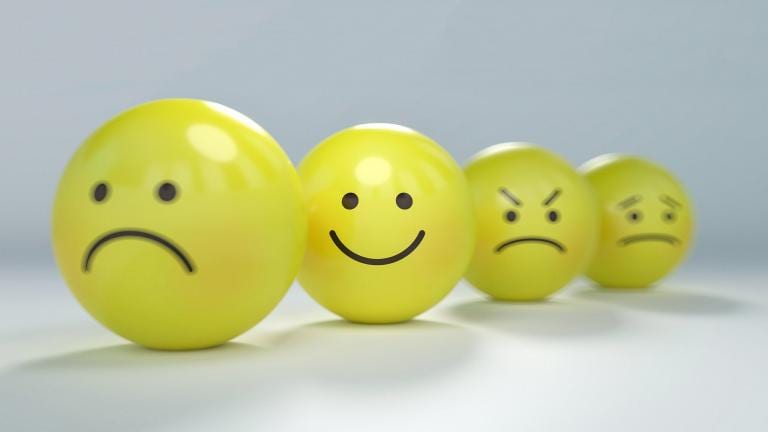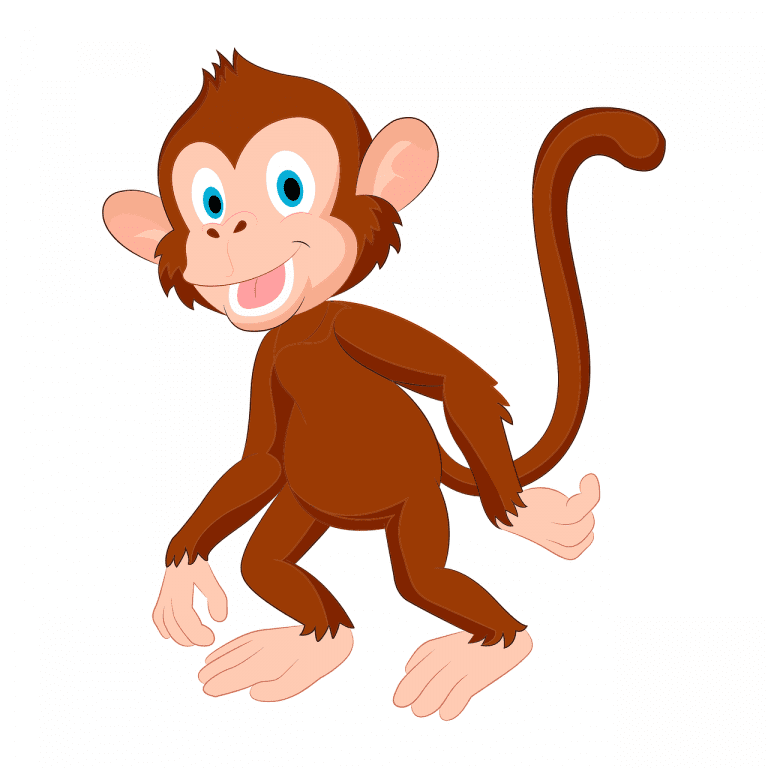
Find the whole #TravelswithmyMonkey series here
<<Previous post: Have You Ever Felt Beaten Up By Your Own Brain?
Next post: Windmills of Your Mind: The Tyranny of Thought >>
Everyone wants to be happy. It’s one thing we all have in common. Even those people who we are convinced wake up every morning with the sole intention of being a massive pain in the backside – however seemingly twisted and unfathomable their methodology – even they are trying to be happy.
So what is this thing, happiness? Does it even exist in any real, measurable way? For something so widely sought after, it’s infuriatingly difficult to pin down.
There was a time when I seriously questioned its existence. I remember it quite clearly. I was twenty, working a summer job at Diggerland. As I recall, this involved being driven by four-year-olds around a field of giant muddy craters in an actual full-size JCB (as terrifying as it sounds) and giving little train tours, avec commentary, of what was essentially a medium sized bog. (The highlight of the tour were the two grey geese, who were described in affectionate detail and actually showed up about twice a month.) I was a university student, whiling away those endless summer months at home (it never occurred to me to actually study) before heading 270 miles back up north for the beginning of third year.
It was in my first year at university I had first encountered depression. The worst of it had only lasted a few months, thank God, but that experience had ripped a great ugly hole somewhere in the depths of me. I was no longer falling headlong into the crevasse, but I often found myself peering over the edge.
I remember driving that little digger train around its dirt track, thinking that everything I had ever held to be good and meaningful was an illusion. The music that had made my soul soar was nothing but empty noise. The spirituality and faith I had known and loved so deeply was meaningless, silly even. Happiness didn’t exist, all was bleak, flat, empty.
I should be clear that I don’t hold Diggerland entirely responsible for my depression. That’s what it was though, I can see that now. The voice of depression still whispering in my ear – and boy was it convincing. Depression rendered me incapable of seeing reality in any other way, and blinded me to the possibility that I could ever feel good again.
But depression is a big fat liar.
If there’s one thing I have learnt from then to now, it’s that happiness is utterly real. It’s about the most real thing I have encountered. This is something I would consider hollering from the rooftops, actually (given a fairly specific set of circumstances), because I remember what it is like to doubt its existence. Not only is happiness a thing, I might go so far as to say it’s the thing.

The revered wisdom of Hollywood teaches us that eternal happiness will come from marrying the man of our dreams, getting super rich, becoming cool, successful… and so on. Companies invest millions into making us believe that happiness will be ours if we would only buy their new fragrance/shoes/vacuum cleaner/cat food. Now don’t get me wrong – stuff can be great. I love a bit of stuff. But unless we have some understanding of how happiness actually works, we’ll find it turning to dust in our hands.
Happiness is a slippery little bugger, you see. There’s that initial glow when we achieve or acquire something, the burst of pleasure, the buzz of excitement. And after a little while the glow fades and we feel just like we did before, except with the goalposts moved a bit further along.
The trouble is, when we pin our hopes of happiness onto things outside of ourselves, we are effectively relinquishing control. Furthermore, (I can attest to this), it is possible to be outwardly successful, fortunate, surrounded by wonderful friends and loving family, and be utterly miserable. The flip side of this is the most delicious news of all: when we understand how happiness actually works, it is possible to have outwardly very little but still be incredibly happy. That means that no matter how much dog poop life throws in our faces, there is always something we can do within ourselves to make our experience better.
Of course, sometimes a change of situation is required. If you are stuck down a well, for example, your happiness will presumably be fairly compromised until you manage to get out. This isn’t about not making changes when they are really needed. There’s a baseline. There are fundamental needs that humans have, but once those are met we have a tendency to keep reaching outwards for more, believing that happiness resides within the next promotion/ gadget/ baby/ relationship/ slice of pizza. Our external circumstances are important, without a doubt, but they aren’t the key to deep, lasting happiness. That comes from the inside out.
I have learned that deep, lasting happiness is something that takes practice and cultivation. Trying to force it is like trying to force a plant to grow. Just as we might cultivate a garden by pruning, feeding and watering it, there is a lot we can do to make happiness more likely to make an appearance in our lives. Enter the giants of Buddhism and other philosophical traditions (Christianity included), modern psychology and neuroscience. Some of this wisdom has been around for thousands of years, yet still has the potential to be incredibly powerful and game-changing for us now.
Paradoxically, deep, lasting happiness doesn’t mean we never feel bad. We can be deeply happy – secure, healthy, rooted, and still feel undesirable emotions like fear, sadness and anger. These don’t go away (nor should they) but we can learn to experience them in a different way. Somewhere beneath the fluctuating emotions there is a deep OK-ness, an anchoring. A contentment beneath the discontent, a part of us that remains untouched. Happiness is an inner state (many would argue our natural inner state), influenced by external factors but also independent of them. When we are deeply happy, the temporary highs last longer and the lows are far more palatable.
Real happiness is life in all its fullness. It is a magnificent feeling, and we have far more access to it than most of us realise.
There are those who spend a lifetime living out this wisdom and the results are often scientifically staggering. But while I may not be floating three inches from the ground in lotus position, I have learned to tame my monkey mind enough that I rarely get stuck in negative thought spirals like I once did. My monkey is gradually learning to take a back seat, and the result is that most days I feel genuinely, deeply happy – something that at various points in my life has felt like an impossible fantasy.
“OK, I get it!”, I hear you cry.
“Enough with the ridiculous metaphors and patronising clichés. How the heck do I access this happiness within??”
Now that, kids, is for another day.
P.S. I need to make one thing very clear: if you are struggling with a mental health issue of any kind, find someone to talk to. Seek help. You are definitely not alone, and there are qualified professionals who are used to dealing with precisely the sort of thing you are experiencing. I am a massive believer in the benefits of education and self-help when it comes to mental health, but this should never replace professional, medical help when its needed. (Note: Of course, any muppet can write a self-help book. Discretion required.) Think of it this way: we can learn how to stay healthy by vacating the sofa once in a while and easing off the Dunkin’ Donuts, but that doesn’t mean we don’t go to the doctor when we think something’s not right. Same thing with mental health. Learning to help ourselves is crucial, but so is being unashamed to seek outside help when we need it.
Find the whole #TravelswithmyMonkey series here
<<Previous post: Have You Ever Felt Beaten Up By Your Own Brain?
Next post: Windmills of Your Mind: The Tyranny of Thought >>
Images via Pixabay












